Task Force’s new leader Kierra Johnson on the future of the LGBTQ movement
The incoming executive director of the National LGBTQ Task Force brings a wealth of social justice experience to the role.

When Kierra Johnson heard about the recent U.S. Senate victories in Georgia, she was elated.
“I must have grinned so hard, my cheeks were hurting,” says the native of Valdosta, Georgia. “I felt like I had a cramp in my cheeks.” For Johnson, the victories by Democrats Raphael Warnock and Jon Ossoff felt like a “vindication” of something she’d been saying for years.
“I have been on my soapbox for almost 25 years now about the divestment in the South and Midwest by progressives. It has been a conviction of mine that there are a lot of progressive people who care about social justice issues sitting in the Deep South and sitting in the Rust Belt. And when we divest from organizing, from community building, from training, we’re not tapping that source of energy.”
She says that people involved in social justice movements should take a lesson from the Georgia victories about the power of organizing: “I think Georgia made a case for investing more people, more time, and more money in the South and in the Rust Belt. And it makes a huge difference for what we’re able to do politically.”
Johnson, who currently serves as the deputy executive director of the National LGBTQ Task Force, will take over the reins of the organization as its executive director on Feb. 1. The transition will occur shortly after the Task Force hosts its 33rd annual Creating Change conference, a trademark event that brings together leaders from various social justice movements to collaborate, share ideas and experiences, and form bonds that can help inform future activism.
Unlike many others in the LGBTQ rights field, Johnson got her start in activism as part of the reproductive justice movement, working for various organizations for the better part of two decades. In 2017, she was approached by current Task Force Executive Director Rea Carey and asked to bring her talents over to the LGBTQ movement.
“When Rea spoke to me about the position, I was already thinking, ‘I feel like I need something else,'” recalls Johnson. “I was nine months pregnant, and Rea told me, ‘Our deputy director position is open and I really see us working together, what do you think?’ And I said, ‘Oh that sounds kind of cool. I love that idea, let me get back to you after I get back from parental leave.’ I went into labor that day. I took it as a sign. I thought, ‘Okay, I’m in the process of a lot of changes and this is where I want to be.’ And Rea was a leader that I wanted to follow. I’d always been a fan of the Task Force staff and their brilliance, but also Rea as a leader there.”
As a child, Johnson likely would not have envisioned herself in her current position, ready to become the face of one of the nation’s top LGBTQ organizations. The daughter of an Air Force veteran, she was forced to move several times, first from Valdosta to Atlanta, and then, as a teenager, to Colorado — moves that forced her to seek our new social circles. As a youth, Johnson, who describes herself as a “recovering introvert,” was someone who typically was not one to bask in the spotlight, although she eventually found two outlets that helped her overcome her shyness: singing and debate.
Johnson auditioned in vocal music and theater at the prestigious Avondale High School, a magnet school for the performing arts — which, incidentally, is the alma mater of one of her idols, Democratic activist Stacey Abrams. She began singing in the school’s choir, an experience she loved, and continued to do even after moving to Colorado.
“I love to sing,” she says. “But I think choir played a part in helping me kind of break out of my shell, because I was performing in front of audiences, and it’s a very vulnerable thing to do your art in front of other people because everybody’s got a critique and a comment about it. So it was an opportunity to focus on my talent and my voice, and get through my own fears about messing up or not being perfect or just being in front of groups of people.”
After moving to Colorado, she continued to sing as part of the school’s traveling all-girls choir, but also joined debate club, which forced her to hone her public-speaking skills.
“It was a club, but if you were part of the club, it became a part of your class schedule,” she says. “There was a lot of research and practicing and preparation and then we competed. It was also a competitive club, so we competed around the state, and then depending on how each of us did, we competed in nationals, too.”
Johnson currently lives in the D.C. area with her partner, with whom she is raising three children as part of a blended family.
“Our 13-year-old daughter is in a relationship with a girl, our 10-year-old identifies by the pronouns they and he, and our three-year-old is just living their life,” she says. “But I think it’s important to note that our kids are also queer. I think queer people and queer families have always been the bar for showing how we can do things differently. There’s no special formula to raising kids, unless the formula is presence, love, and respect. But there’s no formula for what constitutes a ‘good’ family, the ‘right’ family, or the best family.”
As a mother of three, she has been forced to find ways to balance her job and home responsibilities, something especially challenging during the COVID-19 pandemic.
“This COVID time has taught me there’s nothing more important than the people I love getting what they need,” she says. “There’s always the work that has to be done…. The stuff that’s on my to-do list that I didn’t get to today will be there tomorrow. It’s likely someone will be pissed off at me, and I will be in relationship with them and I will apologize and figure out how to prioritize it another way, another time, another day.
“But it also matters to be in relationship with the people we care about and they care about us, and to feed their joy and feed our own joy,” she adds. “As soon as I get off the phone with you, I’m going to be doing ‘Just Dance’ with these kids. I’m exhausted, but we’ve got to dance it out. I’m going to be making it happen.”

METRO WEEKLY: What were you like growing up?
KIERRA JOHNSON: I was painfully shy. I call myself a “recovering introvert” now, although I’m not ashamed to be an introvert. I’ve been telling my kids, and the 10-year-old in particular, “I was really not cool growing up.” But I was cool-adjacent, my friends were cool. I don’t know how I made it into that crew, but I’ve always been kind of a funny person. So it helps to have a sense of humor and to be able to make other people laugh. I think that gets you a long way.
It wasn’t until high school that I started coming out of my painfully shy shell. I really credit it to speech and debate. I had moved to Colorado in the middle of the school year, so that already is no fun for a teenager to leave their school in Georgia, and then, in the middle of the school year, move to Colorado. So I was looking for my people. I was just trying to make friends, trying to figure out where I was going to lay my hat. I was in performing arts at the performing arts school, Avondale, in Georgia, when I left. So that’s where I saw myself, in the fine arts.
Once I got to Colorado, I was like, “Okay, it’s a new day, it’s a new school, it’s new people, a new state, I’m going to try some new things.” And speech and debate, I really think led to me opening up. I got to be in front of audiences of people and talk about my perspective. In some ways, I got to put on a different persona and talk about what I thought and my perspectives and my analysis about different issues and arguments. And it just grew from there.
MW: How did your debate skills help you come out of your shell in college?
JOHNSON: I ran and became student body president, one of the Tri-Executives [at the University of Colorado Boulder]. I was in the black student union, I was organizing with the United States Student Association on tuition issues and tenure for faculty of color and divesting from corporations, even back then in the ’90s. So it kind of snowballed from that one decision to decide to join the speech and debate squad. I was such a nerd.
MW: You talked about working on divestment. What were you pushing the university to divest from?
JOHNSON: It was more focused on corporations. So Sodexo, Nike, those were the two big ones that stand out to me. With Sodexo, it had a lot to do with the free prison labor that Sodexo was using to keep things cheap. With Nike, it was sweatshops, and that was a big deal for CU Boulder. We were a big sports school and all of our sports gear was branded Nike. Those were the two biggest issues. I think there was also one involving Dole, if I’m not mistaken, that was around farm workers’ rights. It was strawberries and grapes at the time, and really spotlighting farm worker rights, which was a really big deal. In Colorado and west of Colorado, there are a lot of farm workers who are people of color, and a lot of their kids were first-generation children, so it was a poignant palpable issue for a lot of us working together, both in the state and across other states.
MW: When you first came to D.C., you began working on reproductive justice issues. What are some lessons you learned from working in the reproductive justice movement, and how have those informed your LGBTQ work?
JOHNSON: One of the things I learned early on is that it’s just like having people critique your art. Everybody will critique your organization and your leadership and you have to have a strong sense of purpose and vision, and an understanding and commitment to how you want to reach your goals so you don’t get drawn off track.
I remember, specifically, we started a program called Bro-Choice at Choice USA. It’s funny now that I think about it. The reason we were doing it was our organization worked primarily with people under the age of 25, mostly between the ages of 18 and 25, on college campuses. And more and more we were finding that there were young men and gender-nonconforming folks who were not just allies, they were personally impacted and affected by the work and saw a role for themselves to play, and couldn’t figure out if they were wanted, needed, or had a place. So we started Bro-Choice, which really spotlighted, again, men and gender-nonconforming folks, trans folks who were in the work, who were abortion rights activists, who cared about reproductive justice, and were unapologetic about it.
Now it sounds cuckoo-bananas, but you wouldn’t believe the amount of negative feedback that came to us when it finally launched. It was like “Kierra Johnson is trying to masculinize the movement.” It was “Men should be seen and not heard. Women’s leadership still matters.” I was so hurt and blown away. I wasn’t naïve, I knew it would cause a little bit of a schism but I didn’t expect that level of blowback.
I had to tell people, “This is a no-brainer. We are not going to get closer to gender equity only focusing on women and girls. We really have to be thinking across gender identities and gender expression about what the problems are and what the solutions are going to be.” It was the right thing to do, I would do it again in a heartbeat. We didn’t have a whole lot of support at first, although it did shift.
I can think of a number of moments when I started working with All* Above All before it became All* Above All, looking at repealing the Hyde Amendment and insurance bans on abortions. We were clear it was the right thing to do, we were clear it was the next frontier, and we got a lot of resistance and pushback.
Now, it’s laughable because we’ve heard a presidential candidate saying, “We believe in repealing the Hyde Amendment.” We would have never dreamed that we would have seen that kind of shift in 10 years. But when we first launched the campaign, everybody had their reasons for why we shouldn’t be doing it, we shouldn’t be expending political capital, or why it wasn’t winnable. So those are just two examples of how I learned that just because people don’t agree or because you don’t have overwhelming support from the beginning doesn’t mean it’s not the right work. And sometimes you just have to identify a coalition of the willing, people who are willing to take the risk and go hard until we bring other people along.
Another lesson I learned was to trust myself, trust my gut, trust my experience, trust my relationships. I spent 20 years in [the reproductive justice] movement and probably 15 years of it I spent not trusting myself. Then finally something clicked. At a certain point you start to realize everybody feels clueless, there are just those who fake it till they make it.

MW: How important is coalition building in achieving your goals?
JOHNSON: Ultimately, one of the big lessons I’ve learned is that cross-movement, cross-issue, intersectional movement work is a winning strategy. We can’t win by ourselves. Regardless of who we’re talking about — whether it’s women, poor people, immigrants, or queer folk. Yes, we do need to have our own voice, we need to have our own stories, we need to be at the table defining our own strategies, solutions, and tactics. But none of the things that have moved us closer to equity, justice, or liberation has been done in siloed communities.
Working in the reproductive justice movement, I found that the most success that we had — whether it was cultural change, policy change, or changing hearts and minds — happened when we were engaged in relationships with folks from other constituencies and other movements. It helps us not to work at cross-purposes, it helps build relationships that actually can sustain through hard times, or missteps, or misunderstandings. It moves us from the transactional to real transformational change.
MW: What role or niche do you see the Task Force as filling in relation to some of the other national LGBTQ groups, like the Human Rights Campaign, the Equality Federation, the National Black Justice Coalition?
JOHNSON: I think the Task Force has had a reputation for having deep connections and relationships across movements. We have deep relationships with folks in the economic justice community, within the civil rights community, within the women’s rights and reproductive justice community, and within the immigrants’ rights community. It’s not like people come to Creating Change, do a conference, and it’s done and we call them partners. There have been ongoing deep partnerships and conversations at multiple levels within the organization.
Rea, as executive director, has been connected to other EDs across movements, but the program staff is deeply connected in various ways. So I think being a connector and a bridge to other movements is a real asset, has been and will continue to be. I really want to see the Task Force live into its legacy of being on the cutting edge. I want us to take risks that might not make sense for our other partners to take.
For instance, one of the things I’m really proud of is the work we did on the Second Chances campaign in Florida. I don’t know of many LGBTQ organizations that were taking on that body of work of returning voting rights to returning citizens, like folks coming back from prison. That’s the kind of work I want us to do. I want us to say, “You know what? This is an LGBTQ issue and this is why.”
For instance, 40 percent of prisoners in women’s prisons in Florida are folks who identify as lesbian, bisexual and queer. Forty percent, not four. That’s not a solidarity issue, that’s a queer issue. Through that work, we’ve been able to move LGBTQ organizations to think about this work, this issue differently, but also move prison reform and racial justice organizations to think about LGBTQ people as a constituency to be considered relevant in coming up with the solutions. That’s the kind of cutting-edge work I want us to be doing. It doesn’t necessarily make sense for a lot of other organizations to do that, and I think we are perfectly positioned to do that.
MW: The Task Force was one of the first national-level LGBTQ organizations to speak up about the need for intersectional work and collaboration with other social justice movements. As a Black woman, how do you see the Task Force’s legacy on racial justice issues?
JOHNSON: The quest to interrupt the hold white supremacy has on our politics, our government, our culture, and our organizations, is an ongoing one. The Task Force has evolved so much over the years, and it is undeniable, both in representation of the staff and board, the number of people of color who now are part of the organization, but also in the types of issues and the types of partnerships that we’re engaged in. Those have really shifted over the years and it’s important for me that our communities, LGBTQ folks but also the broader social justice community, continue to ask ourselves the question: “How do we center various communities of color in our work, in every aspect of who we are as an organization, and how do we do that in an ever more authentic and deep way?”
So my hope is that I continue to build on what the executive directors before me have accomplished and continue to move us forward. I don’t ever want us to be stagnant and patting ourselves on the back because we supported immigrant rights reform five years ago. I don’t want us to ever stop. I want us to acknowledge our history and I want us to keep evolving and to keep getting better. For example, I think we’re in a unique time where people are just more open to having conversations about racism and race. Even understanding that they may not want to, or how uncomfortable it may make folks, just the reality of our times has made it possible for us to have deeper levels of conversation about how we want to be, and how we want to show up as racial justice advocates, both within our respective movements but also across movements.
MW: Do you see the Task Force taking on issues like environmental justice in the future?
JOHNSON: I love that you asked that. It’s something that I’ve been thinking a lot about and I do think it’s an LGBTQ issue. I just saw a statistic that said queer women are as likely to have families with children in them as straight women. And I was like, “Damn, that’s really interesting.” That’s a family issue. So water, access to safe and healthy quality food, who gets access to nature, just trees and grass and clean lakes and streams, I absolutely think there’s a there there, and we’re actually about to embark on just a small project that is going map out who within the LGBTQ movement is doing environmental justice work and what are they doing, where are they doing it, who are they doing it with, because there’s a growing interest both of the staff and board but also of our constituents who care about the environment. And I don’t just mean whales and polar bears, but their community environments.
When you look at Flint, or Anacostia, there’s a lot of queer people in these places and they tend to be queer brown people and/or queer poor people. So that’s where we’re starting. We’re trying to figure out who’s already in the game and then from there figure out if there’s a role that makes sense for us to play, which my gut says there probably is. We’re in our 33rd year of Creating Change and I have to tell you, I’m not saying there haven’t been any environmental justice workshops but I can’t think of any off the top of my head. We get cross-sections from all kinds of movements at Creating Change, so I think that’s an indicator that there probably isn’t that much work happening.

MW: Regarding Creating Change, you mentioned it’s been going for 33 years. How do you think the conference has helped people on the ground with their activism, and how do you see it having changed over the years?
JOHNSON: Coming from another social justice movement, people talk about Creating Change as if it is the bar for all other movements to meet. The women’s movement has talked about it, saying, “Can we get a program like that? How will we do that? Who would hold that?” I know other movements have had similar conversations. People are in awe of Creating Change across social justice movements, and it makes me feel really excited because I’ve never seen a conference that brings together researchers, donors and program officers, political organizational leaders, members of Congress and local government, activists, students, professors, authors…. It blows my mind, because everyone’s got a conference for their own special cause. But it’s like everybody shows up at Creating Change, and there is a magic that happens when we are together, thinking together, celebrating together, learning together. Clearly there’s something special that keeps bringing people back.
Creating Change has also evolved over the years. Over 30 percent of the attendees identify as trans and genderqueer or nonbinary. Over half of the folks are people of color. About one-quarter to 30 percent of the folks are students under 25 years old. And they come from all over the country so it’s not like they’re just coming from San Francisco, Chicago and New York. They’re coming from Hawaii, and Minnesota, and New Mexico, and Georgia. So folks have an opportunity to learn from each other in ways that you just don’t necessarily get to do just in your hometown or just talking to the people in your own organization. It is a place where folks know that they’re going to come and take action, they’re going to learn about policy at a local level but also at the federal level. They’re going to find ways to plug into other organizations, either in their state or nationally. And they’re also going to have fun. We don’t sacrifice the fun. And I think that’s why it continues to grow.
Creating Change started as just a few hundred people and now it brings in between 3,000 and 4,000 people. It’s cross-movement, so it’s not just people in the LGBTQ movement, but it’s folks from other movements who understand that queer people are a constituency to be considering, as they’re thinking about strategies, messages and tactics. They’re here to learn and to make those connections and to do that cross-sectional work and movement building too.
MW: Looking at the political landscape, we will have a new administration in the White House, with a friendlier Senate than most of us expected and a friendly House at least for two years. In terms of prioritizing some of the goals that we want to see accomplished, what would your advice to the incoming Biden-Harris administration be?
JOHNSON: So, of course, the Equality Act is top of heart and mind right now. I don’t think anybody thought we would be in this position in the near future, that we actually have a chance to pass the Equality Act within the next few years. So we know we’ve got a window of time, we want to make some moves in the next two years and we want to be pushing the administration and also congressional members to make sure that they are prioritizing nondiscrimination legislation in this next Congress.
Gone are the times where we give elected officials the benefit of the doubt. There are elected officials that we know that we can count on for different things. We can look at their records and figure out who are our friends. But that doesn’t mean we don’t have work to do. We have to stay on them, we have to make sure that their constituents are in their offices, both here on Capitol Hill but also in their districts. We want to make sure that our folks are telling their stories, and the impact of what not having protections mean. It’s real for our folks: they’re losing their homes, they’re losing their jobs, they’re dying because people aren’t giving them medical care. So it’s important to tell those stories because sometimes folks on the Hill really just don’t know.
I think repealing the ban on trans people serving in the military, that’s something we can move on that shouldn’t take years.
MW: Historically, when Democrats have found themselves in a situation where they have a narrow majority, there’s always this reticence to use power, and there’s always a handful of senators who appear to take turns blocking legislation and stalling for time. We saw this with health care reform, where they waited before moving forward, by which point public sentiment had turned against taking any action. How do we avoid repeating the mistakes of the past?
JOHNSON: Well, when I was doing repro work, we saw this around the Hyde Amendment, and it’s taken us 10 years to even get the Democrats on board. It’s one of those things where they were hemming and hawing, saying, “Well, you know, no taxpayer funding for abortion is the law of the land,” and blah, blah, blah. And we had to do a lot of educating. So part of that is it’s about education. Not just hearing from national leaders but identifying people in their districts who can talk about impacts and stories and experiences.
We have to serve it up, and we have to make sure that they know that they’ve got support and it matters. But like you said, it’s not enough that they might have run on a platform that supported, for example, the Equality Act, or ending conversion therapy, or safe schools. We’ve got to get the secured “yeses” from them and part of that is having real specific conversations about what they need to get there. And that’s going to take a lot of work from us and our communities. But it works. We’re seeing it work. It’s the reason we’re looking at a Congress and an administration that looks the way it does right now.
MW: How would you like people to see you in your new role as executive director?
JOHNSON: I want to be a leader that people look at and say, “Wow, I want to be a leader like that. She is her authentic self.” It’s not, “I want to be like her.” It’s “I want to be authentically me the way she is authentically her.”
A lot of us don’t think we can be in these high-profile positions because we’re parents or because we are not married or because we’re older or we’re black or people of color, or we’re women or trans or gender-nonconforming. There are all kinds of narratives we hear all day, every day, both explicit and implicit, which tell us that we can’t, that we shouldn’t hope for it, and that we shouldn’t expect it. And I want to be an example that yes, you can. I’m not perfect at it, Lord knows. But I’m doing my best and it’s going to be just fine.
The National LGBTQ Task Force’s 33rd annual Creating Change Conference will take place virtually from Jan. 28 to 31. For a full schedule of events, workshops, and speakers, and registration information visit www.thetaskforce.org/creatingchange.
For more information on the National LGBTQ Task Force, visit www.thetaskforce.org.
Support Metro Weekly’s Journalism
These are challenging times for news organizations. And yet it’s crucial we stay active and provide vital resources and information to both our local readers and the world. So won’t you please take a moment and consider supporting Metro Weekly with a membership? For as little as $5 a month, you can help ensure Metro Weekly magazine and MetroWeekly.com remain free, viable resources as we provide the best, most diverse, culturally-resonant LGBTQ coverage in both the D.C. region and around the world. Memberships come with exclusive perks and discounts, your own personal digital delivery of each week’s magazine (and an archive), access to our Member's Lounge when it launches this fall, and exclusive members-only items like Metro Weekly Membership Mugs and Tote Bags! Check out all our membership levels here and please join us today!








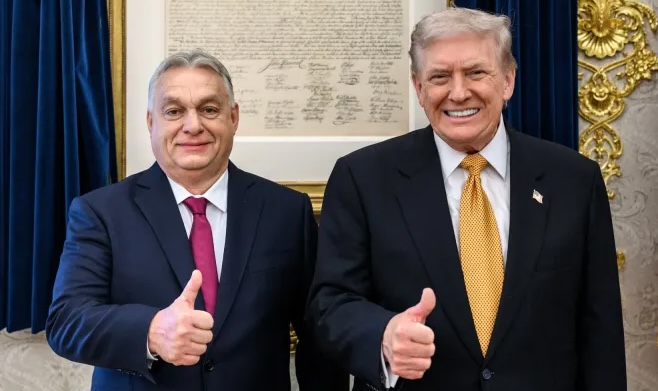

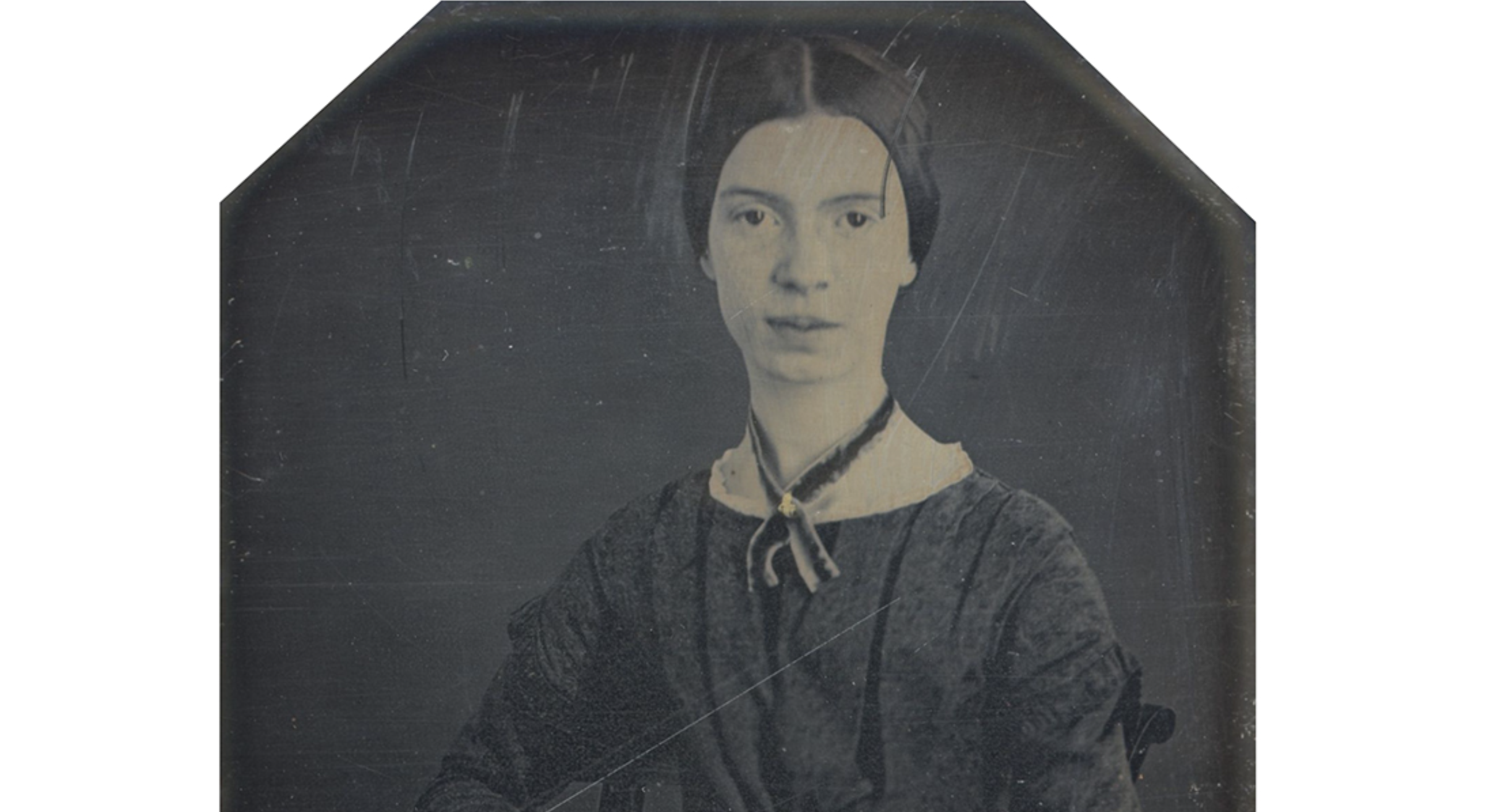















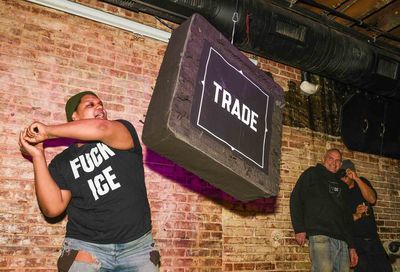
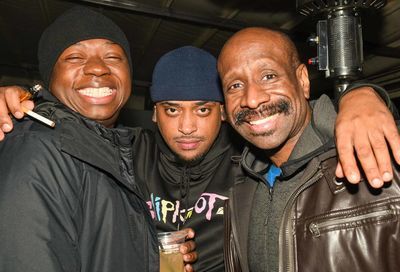
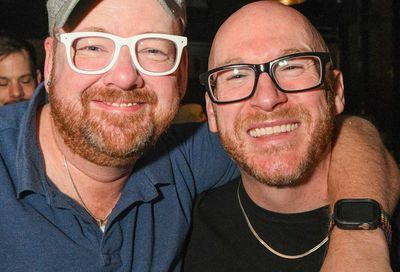
You must be logged in to post a comment.